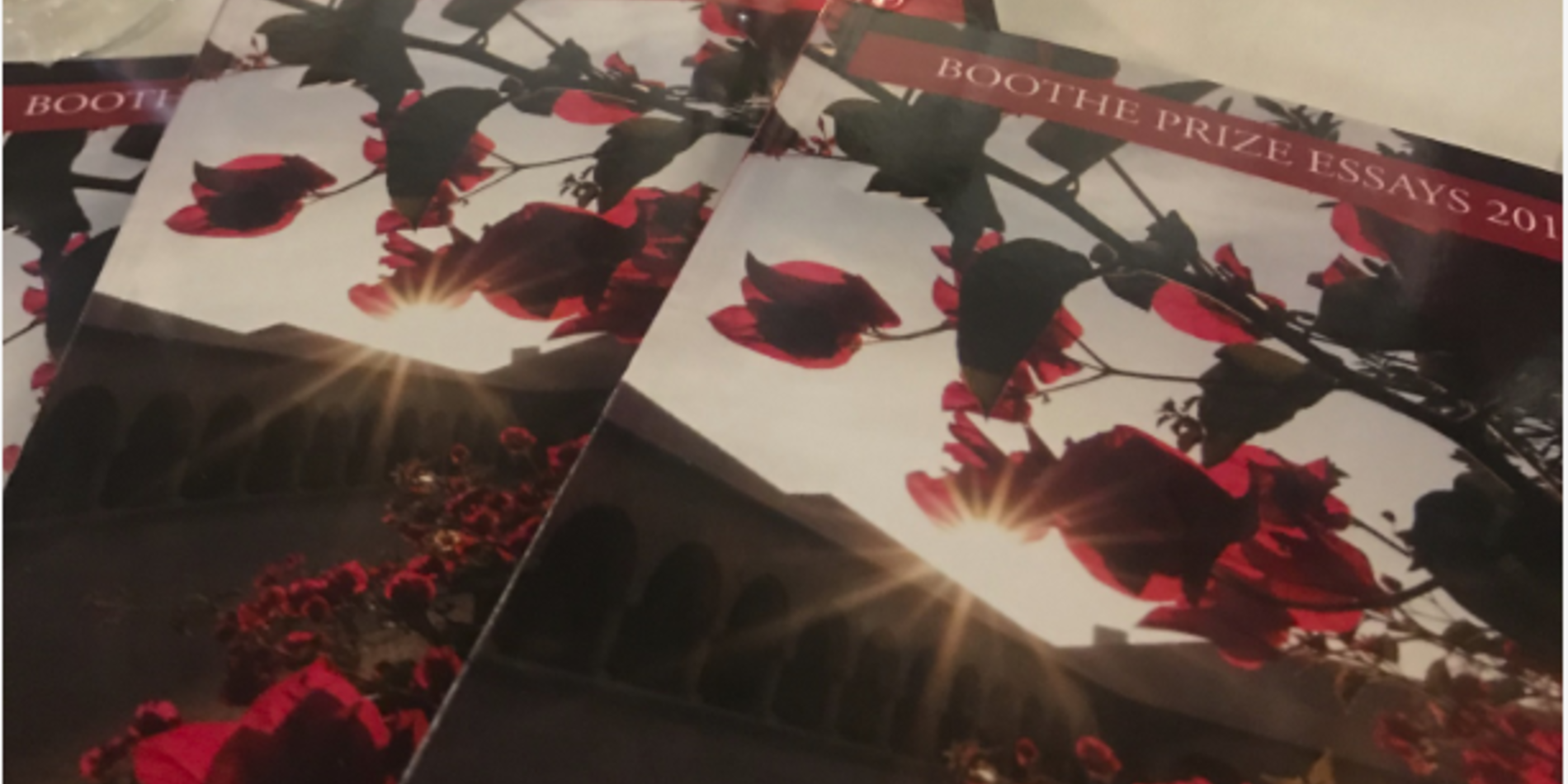In this issue, we're spotlighting the winners of the Spring 2019 Boothe Awards. They'll be honored in person at our Awards Ceremony in May 2020.
Cole Maxwell: Boothe Prize Winner (Spring 2019)

Cole Maxwell won the Spring 2019 Boothe Prize for his essay, "Mrs. Stanford in the Nile: The Legacy of the Stanford Family's Collection Practices in Egypt at the Turn of the 20th Century." He wrote the essay for Gigi Otalvaro's PWR 1 class: "Art, Writing, and Performance: The Rhetoric of Visual Analysis." Otalvaro writes:
It was a pleasure to have Cole in class and to witness his ability to translate his passion for this important topic into a compelling RBA. The essay contributes to the ongoing international debates within museum studies and visual culture, concerning the topic of museum ownership of antiquities and reparations, as well as how it relates to Stanford’s history. Cole’s RBA provides insight into the Stanford Family’s collection practices, which comes at an appropriate time, given the Cantor Museum’s current exhibition about Leland Stanford Jr.’s collection. Cole articulates a perspective that is both critical and generous, with regard to the practical suggestions he offers to museums like the Cantor who are implicated in this complex debate.
Originally from Eden Prairie, Minnesota, Cole is majoring in Mechanical Engineering and minoring in History. He also takes classes in Biology, Chinese, and Studio Art. Outside of the classroom, he's involved in Engineers for a Sustainable World, a student group that organizes sustainability focused initiatives in the Bay Area. Reflecting on his PWR 1 experience, Cole writes, "In my PWR1 class, I learned that rhetorical situations are not confined to words and text. Rather, they represent tangible interactions we have with the world around us. This insight was important as I studied how the Stanford family engaged with Ancient Egyptian objects through their collection practices."
You can read his award-winning essay online in late May 2020 when the Boothe Essay collection is published.
Caroline Utz: Boothe Prize Honorable Mention (Spring 2019)

Caroline's award-winning essay,"A Capitalist in Sheep's Clothing: Dove, Real Beauty, and Pseudo Social Change - the Consumption, Commodification, and Commercialization of the Body Positive Movement," was written last spring for Yanshuo Zhang's "In the Eyes of Different Beholders: The Rhetoric of Beauty across Cultures." Caroline is currently undecided for a major and enjoys studying psychology, politics, and American society especially regarding race, gender, and socioeconomic inequality.Her interests beyond school include theater (she will be portraying Berthe in the Ram’s Head production of Pippin this spring), singing, playing the guitar, and writing music. During the summer, she works as Nature Director and Boundary Waters trip leader at Camp Olson YMCA in Northern Minnesota where she ignites her passion for outdoor education and her love for the wilderness.
Yanshuo had the following to say about Caroline's project:
Caroline's project sprung from the excited discussions the class had on how ideas of beauty are shaped by and in turn shape a society's gender norms and power dynamics. We used many multimedia texts that students brought to the class to analyze "beauty" as a social construct. Caroline pushed the discussion one step further by examining the capitalistic incentives behind major beauty industry's seemingly liberating rhetoric of "body positive movement," where plus-size women and women of color are still marginalized. We attend to the ethical function of rhetoric in class as I motivate my students like Caroline to think about how they can use words to advocate for social change.
For her part, when asked to reflect on her PWR experience, Caroline shared the following:
Effective communication is a crucial skill to understand and master if you want to enact change. Ultimately, that is what writing teaches us—how to attune ideas and convictions into comprehendible information in hopes of engendering some sort of action or change, even if it’s merely a change of thought. I feel so grateful that through my experience in PWR 1, I have been given a foundation for communication skills I intend to hone for the rest of my life. I may not know exactly what my future holds, but I do know that no matter what I do, it will involve communicating with others and, hopefully, affecting a positive change.
You can read her award-winning essay online in late May 2020 when the Boothe Essay collection is published.



